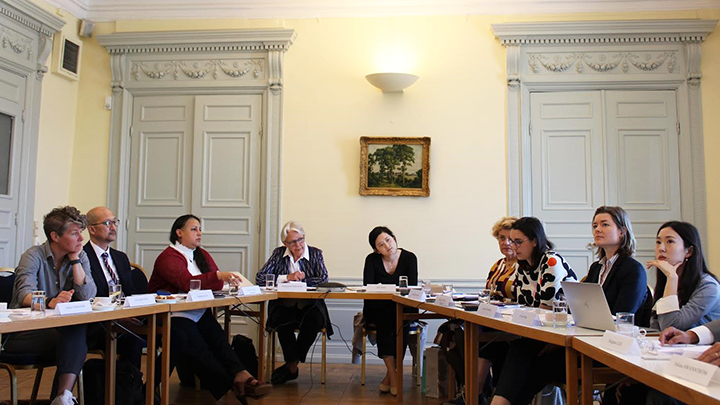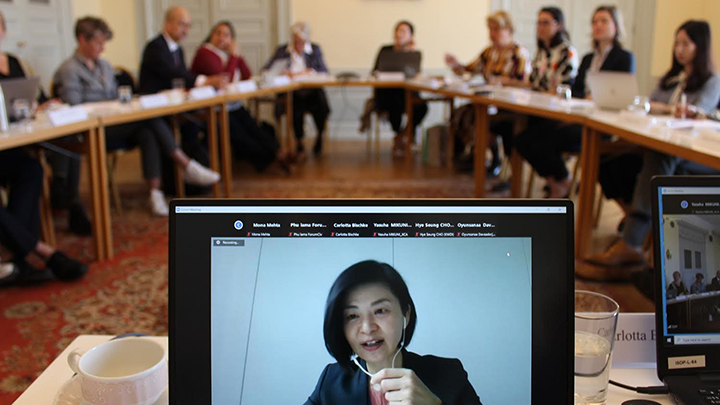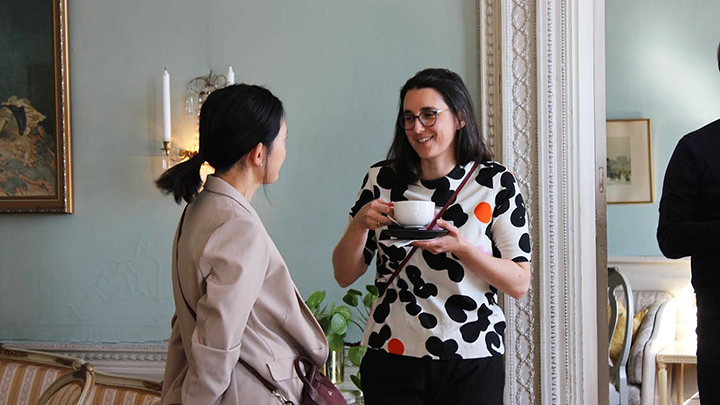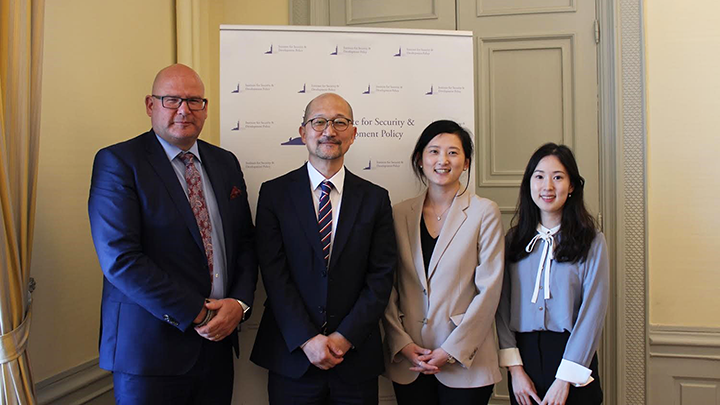Promoting Gender Equality through Development Assistance in the Postpandemic Era

May 30, 2022: Last week, on the International Women’s Day for Peace and Disarmament, May 24, the ISDP Stockholm Korea Center co-hosted a conference together with the Korean Women’s Development Institute (KWDI), who were visiting from Seoul, South Korea. The theme of this year’s roundtable discussion was Gender-focused Development Assistance, concentrating on the current state, challenges, and prospects for promoting gender equality in the context of development cooperation during the pandemic. A particular focus was placed on gender-based violence (GBV) and women’s economic empowerment (WEE). The roundtable discussion was organized in response to a growing demand in South Korea and many Northeast Asian nations to increase development cooperation by concentrating more on gender issues, specifically GBV and WEE. Professionals from the government, international organizations, donor agencies, CSOs, and other related institutions from Europe and Northeast Asia were invited to give their perspectives, share best practices, and identify opportunities.

Gender Equality in the Post-Pandemic Era
Since the pandemic has had an undeniable impact on gender equality around the world, this year’s conference included a more comprehensive post-pandemic viewpoint. Furthermore, it is now evident that the pandemic has deepened pre-existing inequalities, which include gender inequalities. Since the outbreak of Covid-19, emerging data and reports have shown that all types of violence against women and girls has intensified. In particular, a rise in domestic violence has been noticeable, with shelters and helplines reaching their capacity. Such trends have highlighted the importance of prioritizing violence against women in Covid-19 response and recovery efforts. Furthermore, as the pandemic has exacerbated longstanding gender inequalities, many women around the world experienced that their quality of life and long-term economic prospects were negatively impacted by the crisis. Women’s access to jobs, technology, as well as finance and savings dropped, while their burden to undertake unpaid care work increased. In light of this, the panelists discussed strategies for gender-sensitive recovery and shared critical points to consider when promoting gender equality in the aftermath of the pandemic.

The conference is the latest outcome of a collaboration between the Stockholm and Seoul-based institutes on gender and development. In the year 2021, the thematic focus of collaboration of the two organizations was on Women, Peace and Security. For the year 2022, the two institutes have opted to focus on Gender-Based Violence (GBV) and Women’s Economic Empowerment (WEE), building on their collaborative research efforts and results from the previous year.

Many thanks to our moderators and our distinguished panel consisting of:
Margareta Wahlström, former diplomat and former President of the Swedish Red Cross, Moderator
Jiso Yoon, Director of the Center for International Development and Cooperation, KWDI, Moderator
Anna Crumley-Effinger, Gender and Conflict Advisor, Plan International Sverige
Katia Urteaga Villanueva, Gender, GBV and PSEA Thematic Manager, NORCAP/Norwegian Refugee Council
Lotta Sylwander, Lead Policy Specialist Gender at Swedish International Development Cooperation (Sida)
Mona Mehta, Gender Justice Lead, Oxfam International
Oyunsanaa Davaadorj, Deutsche Gesellschaft für Internationale Zusammenarbeit (GIZ) Mongolia Country Gender Focal Point
Phu Doma Lama, Program Officer, ForumCiv
Taekmyun Lee, Head of Division for Gender Mainstreaming and Knowledge Innovation, KWDI
Tomomi Uchikawa, Senior Director of Office for Gender Equality and Poverty Reduction, Japan International Cooperation Agency (JICA)